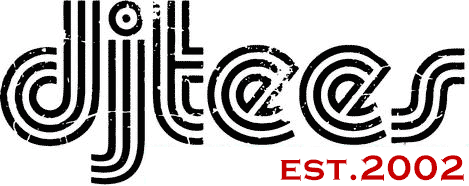Your Cart is empty
Subtotal£0.00
Your order details
Your Cart is empty

If you’ve ever been to Canterbury, it feels like a place where a lot is going on under the surface and behind closed doors. It’s an ancient place, history everywhere in old streets. These days, it's a very expensive place to live. Terrible really, the place is full of business execs who work in London and throw their money around whereas back in the day there was a strong bohemian strand and it was out of that culture a very, sometimes rather incestuous scene, grew and was mostly uncommercial, but glorious all the same. It lasted maybe 10 years until the hard, capitalist realism of the 1980s intervened.
Basically it was a load of very English, usually middle-class men, farting around musically, having a laugh and indulging in some extraordinary musicianship. I always think it started with Caravan’s second album ‘If I Could Do It All Over Again, I’d Do It All Over You’ a title typical of their silliness and slight seaside postcard attitude. They had a college following at the time, which is probably why I found all their records second-hand in the university library in 1980. They were unusual in being keyboard-led, playing riffs and solos on an over-amplified Hammond, sometimes through a fuzz box (I assume) and a wah-wah pedal.
Sometimes you can hear the pedal switch on. It’s very organic and musical and exciting because you can feel and hear the music happening in real time, if you know what I mean and it happens on all their albums particularly ‘For Girls Who Grow Plump In The Night’ (more gentle smut) My favourite which always sends me into freakout mode, its a 14-minute epic which is actually called ‘Can't Be Long Now’, ‘For Richard’ is the third part originally but came to define it, with its quirky riff and adventure in keyboard improvisation.
But Caravan is just the start. If you want more jazz in your prog rock, here come Hatfield And The North with Caravanish stylings but with added wonky rhythms and ambient textures, with songs like ‘Your Majesty Is Like a Cream Donut (Quiet) and ‘(Big) John Wayne Socks Psychology on the Jaw’. They were only around from 1972 to 1975. And the Rotters Club even charted at #43, which is something that Caravan never achieved. Other bands to get into are the most leftfield Henry Cow and Fred Frith and the eccentric Kevin Ayers, there’s Gong with Steve Hillage that are more like an art happening with honking sax and dervish guitar. Hillage’s solo albums represent the most commercial peak of Canterbury. He even recorded his first album with Todd Rundgren and Utopia which peaked at #33 and reached #30 with Green, which I think is his real gift to the cosmic world. He hated being a guitar hero but undeniably was, albeit one in a boiler suit.
We’ve talked before about Soft Machine but they were a Canterbury band in all their incarnations. National Health are a superb jazz-fusion-rock group and Robert Wyatt’s albums - more whimsical jazz-rock. If you want to go deeper you need the prog of Egg and Khan and the jazz rock of Gilgamesh and the folk-rock of Spirogyra.
The one thing that ties them altogether is phenomenal musicianship. Some people even think Tubular Bells is effectively Canterbury inspired given Oldfield was playing on Kevin Ayers albums. Everyone plays on each other's records, so much so that I lose track of bands Dave and Richard Sinclair play for and when. We haven’t even talked about Camel who are a wonderful band led by Andy Latimer and his lyrical guitar, not to mention Pete Bardens, ex-Camel who made some great proggy albums like The Answer.
It’s a lovely self-contained scene and in my experience every album has great qualities and I’ve only just scratched the surface.

We will send you an email to reset your password.

